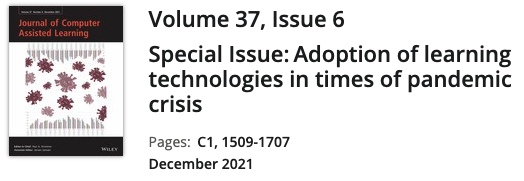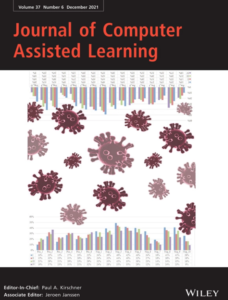 Despite the promises made and the many and varied national and international projects to adopt and roll out new educational technologies and interventions for elementary, secondary, and higher education, long-lasting institutional technology adoption has been hampered by a lack of continuous funding and resources to achieve the continued buy-in of stakeholders. The real impact of daily learning and teaching practices has been rather small and quickly fades out after a project has been completed.
Despite the promises made and the many and varied national and international projects to adopt and roll out new educational technologies and interventions for elementary, secondary, and higher education, long-lasting institutional technology adoption has been hampered by a lack of continuous funding and resources to achieve the continued buy-in of stakeholders. The real impact of daily learning and teaching practices has been rather small and quickly fades out after a project has been completed.
The COVID-19 crisis forced all education providers to move their complete teaching concepts online. This rapid change was also coined as Emergency Remote Teaching (ERT). In this Special Issue, we put a finger on the pulse of this rapid change from traditional to ERT and online learning. We aimed to collect empirical data about behavioural and organizational change in the adoption of learning technologies due to the COVID-19 crisis. While many people have suffered both from and through the pandemic, it has also been a time of major behavioural change and quick adoption of digital means for learning and teaching. Many things that were not possible in the past due to data security, privacy, quality, or other higher goods were thrown overboard. Instead, a rather quick-and-dirty adoption of learning technologies was carried out. In that sense, the COVID-19 pandemic crisis may have had more impact on the adoption of learning technologies than all previous research projects together.

The special issue’s non-exhaustive call asked for studies:
- investigating the impact of newly adopted learning technologies on students’ learning processes;
- comparing staff members’ use of learning technologies before and during the pandemic;
- investigating the organizational change due to digitalization of learning and teaching;
- investigating learning and teaching at all levels of education as well as from professional and informal learning scenarios in times of COVID-19.
We received an overwhelming response of 82 manuscripts that have been carefully reviewed and selected. In the current special issue, we have collected 15 articles from various backgrounds and clustered them into four main fields that have been reported during the pandemic. Those are: C.1 Knowledge exchange among scholars, C.2 Student motivation and engagement, C.3 Differences to traditional teaching, and C.4 School teacher professionalization. In the following section, we summarize and report the four clusters and there allocate articles in more detail.
Drachsler, H., Jansen, J. and Kirschner, P.A. (2021), Adoption of learning technologies in times of pandemic crisis. J Comput Assist Learn, 37: 1509-1512. https://doi.org/10.1111/jcal.12626
